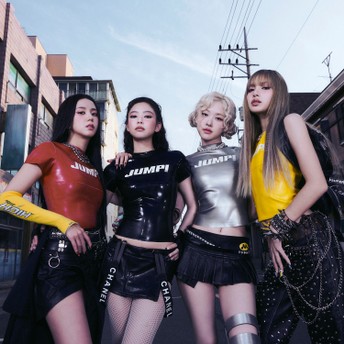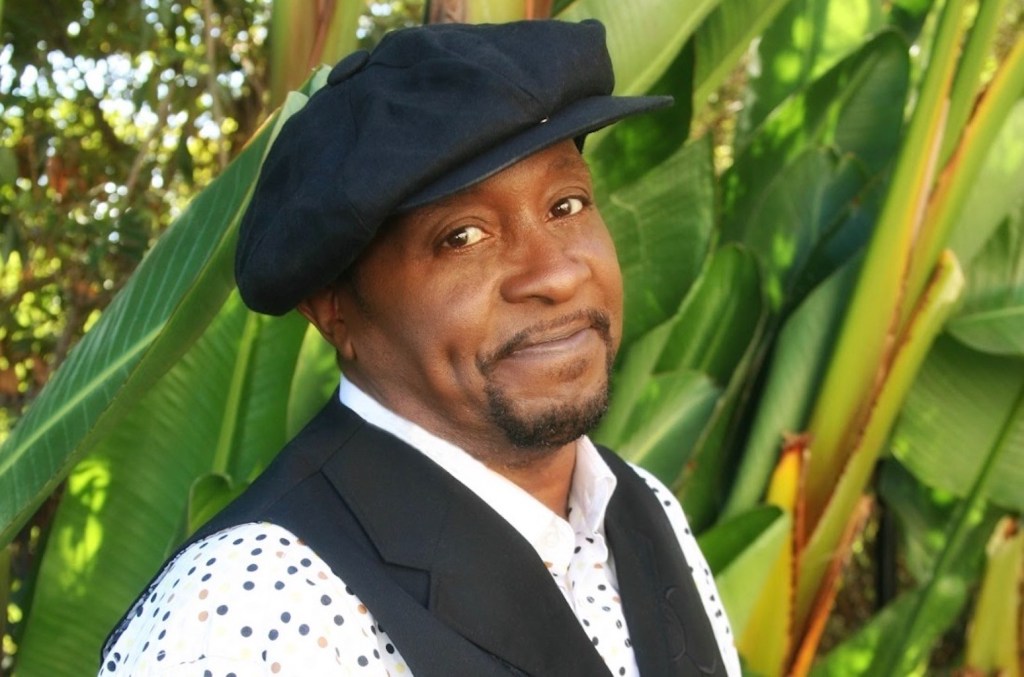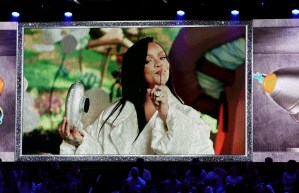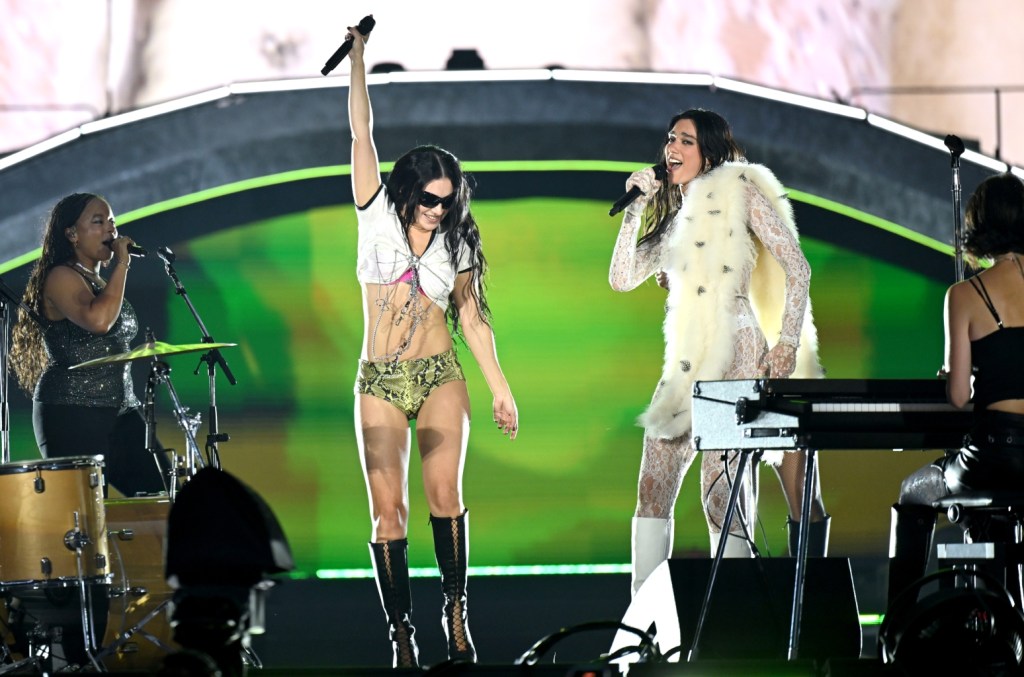Music
Page: 131
Trending on Billboard
Last week was all about the history: In its debut frame, Taylor Swift‘s The Life of a Showgirl album set single-week records for most units moved (4.002 million) and most copies sold (3.478 million) — while also notching all 12 of its tracks in the top 12 of the Billboard Hot 100, led by first single “The Fate of Ophelia.”
Explore
See latest videos, charts and news
This week? Showgirl is still showing out, holding atop the Billboard 200 and claiming 12 of the top 14 spots on the Hot 100. But the counting numbers are a little more modest now — 338,000 units for the album in week two, a significant drop from week one (albeit still one of the top five weeks for any album so far in 2025).
What do we make of those first-week numbers? And what would we advise Taylor to do for the rest of 2025 if we were on her team? Billboard staffers answer these questions and more below.
1. Taylor Swift holds atop the Billboard 200 with 338,000 second-week units moved by her The Life of a Showgirl album. Is that Week Two number lower, higher or about what you would have expected?
Katie Atkinson: Where I would have expected. That would have been an exceptional week 1 number for almost every non-Taylor artist, so while you could focus on the album’s precipitous drop from the 4 million-plus mark, it’s just as easy to frame it as an impressive stand-alone week outside the context of her history-making debut. The higher you climb, the harder… you know the rest.
Stephen Daw: It’s slightly lower than I would have expected. A big drop-off was guaranteed — when you break through the ceiling of first-week sales like Showgirl did, there is nowhere to go but down — but this one is slightly steeper than I would have anticipated. In its second week, Tortured Poets moved roughly 100,000 more units that Showgirl has here, which may have more to do with Swift front-loading the number of album variants on offer for this LP’s rollout than anything else. But either way, this album having the fifth-biggest week of any album in 2025 in its second week is still an accomplishment that only Taylor Swift could achieve in 2025.
Kyle Denis: Much lower, considering this is her lowest second-week units total since 2020’s Evermore (not counting re-recordings). Given the plethora of available formats, constant buzz and conversation and a lead single that didn’t immediately tumble from the top, I thought 350,000 would be the absolute lowest Showgirl pulled in its second week.
Joe Lynch: Between “about what I expected” and “higher.” Much to-do was made of Swift hitting that insane four-million mark thanks to variant versions, so I was genuinely curious what week two would look like. In 2025, 338,000 units is a first-week home run — in fact, it’s the fifth biggest week of the year so far — so it’s an incredible showing for week two.
Andrew Unterberger: Definitely lower, but it makes sense. Swift was clearly pulling out all the stops for that first-week number to be as high as it could possibly be — and she certainly got one higher than I believed was possible. Meanwhile, she knows week-two numbers aren’t nearly as much of a topic of conversation, and (correctly) figured that the streaming numbers would be massive enough to keep her instilled atop the Billboard 200 for some time to come regardless.
2. In addition to still rating atop the Billboard 200, Swift also reigns for a second week on the Hot 100 with “The Fate of Ophelia,” while still commanding 12 of the top 14 spots on the chart. On a scale from 1-10, how impressive do you consider that second-week chart dominance?
Katie Atkinson: 10. Commanding eight of the top 10 in the second week of an album is certainly unprecedented. The most interesting part about this week two lineup is seeing how the songs shuffled around a bit. We still have the same four highest tracks (“Ophelia,” “Opalite,” “Elizabeth Taylor” and “Father Figure”), but then “Wi$h Li$t” slots in front of “Wood,” the title track leapfrogs “Actually Romantic,” and “Eldest Daughter” swaps with “Cancelled!” Since it’s not a “listening to the track list in order” situation, we can get a better idea of what songs are settling in as repeat Swiftie favorites.
Stephen Daw: 9.5. This, to me, is the vastly more impressive feat that Showgirl has accomplished this week. Tortured Poets managed to hold onto the No. 1 spot and the lowest-ranking slots on the Hot 100 in its second week, even with massive sales numbers. While the songs off Showgirl might not have too much competition for the top 10 the way Poets did — it was up against newer, year-defining hits like “A Bar Song” and “Espresso” — the fact that Taylor has managed to keep a grip on eight of the top 10 spots is a massive deal, and one that no other artist today could accomplish.
Kyle Denis: 8. The first time Taylor clogged the Hot 100’s top 10 (Midnights), she only claimed four of those spots by the second week. When she did it again with Tortured Poets, she held onto just three of those spots the following week. Maintaining nearly the entire top 10 — barring the summer-dominating hits “Golden” and “Ordinary” — with an album that was arguably received even worse than her last two is definitely impressive.
Joe Lynch: 10. Keeping this much of the Hot 100’s top slots on lock for the second week is unheard of, literally—this is the first time an artist occupied 12 of the Hot 100’s top 14 spots in the second week of their album’s release. Prior to Showgirl’s drop day, I listened to many people ask incredulously, “How much bigger can she actually get?” We might not have the final answer to that question for a while, but for now, it’s clear Swift is still rising.
Andrew Unterberger: 9. It shows that not only did she claim all 12 of the top 12 spots last week, she grabbed them by the throat — by enough of a margin that her numbers could fall dramatically (as they inevitably did in the set’s second week) and still maintain a chokehold on the chart’s top tier. Staggering stuff.
3. Beyond “Ophelia,” does there seem like an obvious second hit off the album to you? Or does the way the album was released discourage any additional hits from breaking out from the larger album?
Katie Atkinson: This one has to go to “Opalite.” Once again using my kids as my own in-house focus group, my third-grader says this is the one his teacher is playing in class when they get to listen to songs on Fun Friday and that all the girls in his class have created a dance to it. I don’t think we need further proof that this is next in line for the radio/TikTok push.
Stephen Daw: While I would normally say that the rollout strategy means more hits are unlikely from this album, I can’t help but look at past Taylor songs like “Cruel Summer” — or even Billie Eilish’s “Birds of a Feather” from last year — and think that another massive hit is certainly possible. Just by the numbers on both streaming services and the charts, it seems like fans are signaling their interest in “Opalite” as the follow-up single, which makes sense to me — it’s bubbly, light and fits within the broader landscape of the pop space right now.
Kyle Denis: Right now, I’m leaning towards “Opalite” and “Wood” being Showgirl’s follow-up hits. Regardless, any post-“Ophelia” hit will probably need an attention-grabbing remix and music video to truly get off the ground.
Joe Lynch: “Opalite”! Perfect pop song, begging to be released as a single (and I’m sure it will be). The Sabrina Carpenter-featuring title track certainly seems primed for the single treatment — particularly with a clever, Easter egg-stuffed music video — but my money is on “Opalite,” a sturdy song constructed for repeat listens and the radio, as the next single.
Andrew Unterberger: It’s “Opalite.” If you came to Showgirl for pop bangers — as millions and millions undoubtedly did — this is the breezy brain-sticker for you, for sure. Even with the title.
4. If you were on Taylor Swift’s team, what would you recommend she do in the next couple months to extend the lifespan of Showgirl? Or do you think she’d be better off retreating back to the shadows a little and not continuing to push it with the album?
Katie Atkinson: Retreating to the shadows? No thank you! Taylor doesn’t need to continue her media tour or anything, but I’m looking forward to seeing some of the visuals from The Release Party of a Showgirl theatrical release online or in some other venue and I’m very much hoping we get a strong second single (if not two), à la “Karma” from Midnights or “I Can Do It With a Broken Heart” from Tortured Poets. I’m definitely not done with this album cycle, and I’m guessing I’m not alone.
Stephen Daw: Neither Taylor nor her team need my advice. They very clearly understand that the greatest asset Taylor has working for her is the simple fact that she is the most famous person on the planet. Sure, I’ve seen plenty of Taylor-related fatigue creeping its way into the internet discourse around this project, and lots of people (including me) would prefer that Taylor take a beat before rolling out more new content, especially around this album. But the simple fact is that as long as Taylor is able and willing to keep promoting this project, her fans are clearly in the market to keep buying what she is selling. From a purely financial point of view, there is no incentive whatsoever for her to take her foot off the gas.
Kyle Denis: I don’t think she needs to do too much. Showgirl is pretty much guaranteed to stick around the top of the charts through the holiday season. I would spend the next few weeks letting “Ophelia” (and “Opalite,” to a lesser extent) do its thing on radio, enjoy the holidays with my fiancé, and enjoy 2025-26 awards season and the Super Bowl before launching a new single (preferably with a buzzy remix/video, maybe “Actually Romantic?”) around March.
Joe Lynch: I think it’s probably smart to pull back a bit while still making headlines every fortnight or so via a major podcast or TV appearance or music video. She put the pedal to the metal to get to 4.002 million: you don’t want to go from 100mph to slamming on the brakes, but you’re wise to ease up on the gas pedal after demolishing the finish line.
Andrew Unterberger: I think it’d be a good call for Taylor to do a couple lower-stakes performances showcasing some of the album’s less-buzzy tracks. Maybe an SNL appearance doing acoustic versions of “Ruin the Friendship” and the Showgirl title track (with recent double-duty-puller Sabrina Carpenter in tow, natch)? She’s talked about the songs plenty at this point, it’d be nice to give those songs a spotlight moment to speak for themselves a little.
5. The Tortured Poets Department reigned for 17 total weeks — do you think Life of a Showgirl’s rule will ultimately be longer or shorter than that?
Katie Atkinson: I don’t see it hitting that astronomical number – not with the holiday music season upon us. But I wouldn’t be surprised by 10ish weeks in the top spot. Anything is possible with Taylor Swift.
Stephen Daw: I think it won’t reign as long. While the album probably has most (if not all) of 2025 locked up at No. 1, part of what helped Tortured Poets achieve its massive streak was the late year release of the album’s Anthology edition in physical copies. Taylor could pull a similar stunt and release a deluxe edition of the album with new songs, but she previously said she does not intend to do that. Based on the sheer volume of variants we have already seen from this album, I tend to doubt there are even more coming.
Kyle Denis: Shorter. I think KPop Demon Hunters will give Taylor a run for her money as holiday shopping gets under way… especially post-Halloween. There are also the very real possibilities of a massive surprise album dropping out of the sky, or the Wicked: For Good soundtrack avenging its predecessor and topping the Billboard 200. And who knows? Maybe Drake really does drop Iceman this year.
Joe Lynch: Shorter. That album had so many more tracks, which fueled The Tortured Poets Department’s chart enjambment. I’m sure Showgirl will dance atop the Billboard 200 again, but it seems unlikely it will enjoy a longer life at No. 1.
Andrew Unterberger: Longer. As I said last week, I’m done betting the under with Taylor Swift.

Trending on Billboard
Janelle Monáe has been sharing her music and acting with fans for years — but it seems that the performer has been holding out on us when it comes to another unlikely talent.
While chatting with Lucy Dacus for Rolling Stone‘s “Musicians on Musicians” series, Monáe claimed to have traveled back in time (no, really). The subject first came up when the two artists where discussing their shared love of Halloween, with the Boygenius star shouting out her past Pete Davidson, Ariana Grande couple’s costume with partner/bandmate Julien Baker.
“I’ve always loved transforming,” the Knives Out: Glass Onion star offered. “I think when I saw David Bowie — I did. I traveled back into the 1970s, and I saw him do Ziggy Stardust and the Spiders From Mars. It was incredible.”
Looking bewildered, Dacus replied, “You … traveled back?”
“Yeah, I was backstage,” Monáe answered earnestly. “And I was like, ‘This is what I want to do.’ And so I jetted back to the 2000s, and I was like, ‘I can have the musical, make the music, create the lyrics and create community around transformation and being queer.’”
Feeling perplexed? You aren’t the only one. Many of the comments on the video centered around the Hidden Figures actress’ cosmic confession, with one person writing, “can’t believe i was here for janelle’s coming out as a time traveler.”
“lucy’s face as janelle’s comes out as a time traveler is priceless,” another viewer commented.
The “Musicians on Musicians” convo comes a few months after Dacus dropped her album Forever Is a Feeling, which followed the success of Boygenius’ Grammy-winning debut LP, The Record. Monáe last released a full-length in 2023 with The Age of Pleasure.
The multi-hyphenate is now working on writing a screenplay, which they also spoke about with Dacus. “The goal has always been to write, star in, do the soundtrack, produce,” Monáe said of the project. “A lot of things, I know, but I have to fully realize an idea, and I know that I will not stop until I get this. I wish I had some sort of pipe that I can push in my brain. Because the time that it takes … You have the idea, and to realize it, you gotta talk to all these people. I’m just like, ‘I see it!’”
Watch Monáe and Dacus’ full conversation above.
Trending on Billboard All four members of BLACKPINK have now charted songs as soloists on the Billboard Hot 100, as JISOO completes the sweep on the latest, Oct. 25-dated chart. JISOO and ZAYN’s “Eyes Closed,” released Oct. 10 via Bissoo/Warner Records, debuts at No. 72 on the Hot 100 thanks to 5.8 million official U.S. […]

Trending on Billboard Ice Cube took some time to fire back at a critic of his new song, “Act My Age,” and said the troll should get a sense of humor. Cube dropped off the music video for his “Act My Age” song with Scarface on Oct. 15, and one viral post on X noted […]
Cavin Yarbrough, half of the 1980s R&B duo Yarbrough & Peoples, has died at the age of 72. The singer-musician-producer passed away on Thursday (June 19) owing to complications from heart disease. “He was the love of my life, my protector. Now he’s my guardian angel,” Yarbrough’s wife and longtime music partner, Alisa Peoples, said […]
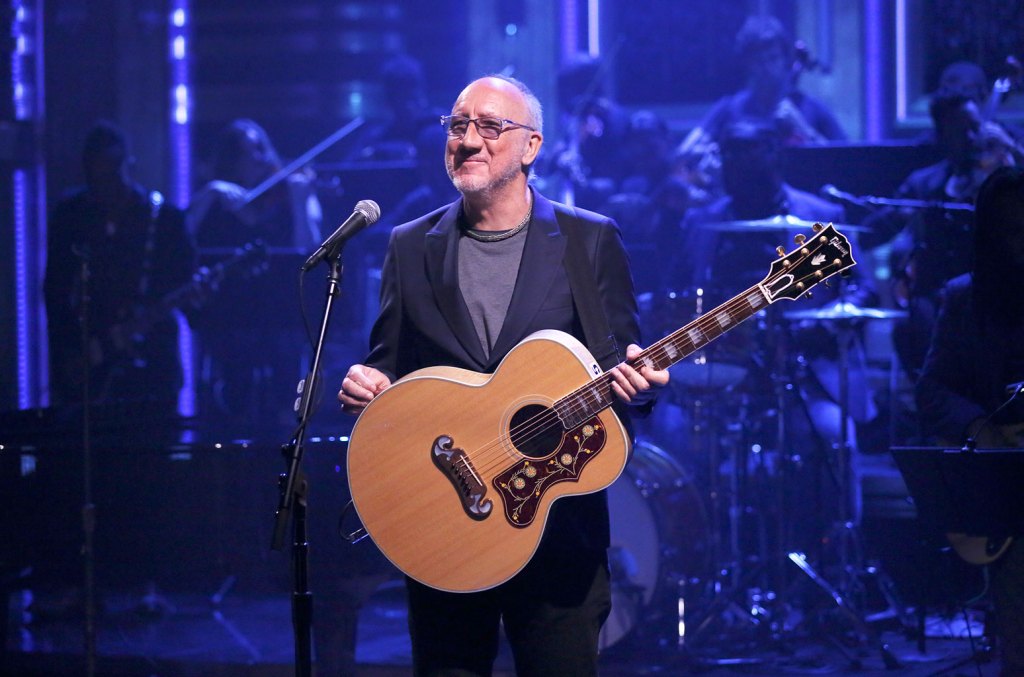
Pete Townshend has a simple description of The Who’s turbulent split with longtime drummer Zak Starkey: “It’s a mess.”
In a new interview with i Paper, the legendary guitarist and songwriter opened up about the chaotic sequence of events earlier this year involving Starkey’s firing, rehiring and eventual departure. Starkey, a veteran session and touring drummer, had been part of The Who’s lineup for nearly 30 years.
“I will miss Zak terribly. But quite what the story is, I don’t f—king know. I really don’t know,” Townsend admitted.
The confusion began in April when Townshend and The Who frontman Roger Daltrey made a “collective decision” to part ways with Starkey, who is the son of Beatles drummer Ringo Starr. Days later, Townshend reversed course, stating Starkey was “not being asked” to step down. But just a month later, Townshend again changed his stance, saying, “The time has come for a change,” signaling the end of their long-running collaboration.
Trending on Billboard
Shortly after, Starkey offered his own version of events, claiming he hadn’t been “fired” but had instead “retired to work [on] my own projects” ahead of The Who’s The Song Is Over farewell tour.
The fallout appears to have been sparked by a misstep during the band’s charity performances for the Teenage Cancer Trust at London’s Royal Albert Hall in March.
“[Daltrey] came in four bars early,” Starkey told Rolling Stone in June. “But he just got lost. He blamed it on the drums being too loud, and then it got made into this huge social media thing.”
In his interview with i Paper, Townshend addressed the same performance.
“I couldn’t see anything wrong. What you see is a band who haven’t played together for a long time. But I think it was probably to do with the sound. I’ve lost my sound man as a result,” the iconic musician said.
He continued, “I think Roger just got lost. Roger’s finding it difficult. I have to be careful what I say about Roger because he gets angry if I say anything about him at all. He’ll be sacking me next. But that’s not to say that he sacked Zak. It’s a decision Roger and I tried to make together, but it kind of got out of hand.”
Despite the turmoil, Starkey says he would return to The Who if asked.
“Of course I would,” he told Rolling Stone. “I said to Pete, ‘Thirty years. In the 30 years, you put the bar so f—kin’ high. What the f—k do I do now?,’” he said. “The Who, you just don’t know what’s going to happen. If you think something is going to happen, the opposite happens. If you second guess Pete, he will play the opposite. You have to go with whatever you’re doing, and not think.”
Morgan Wallen didn’t disappoint fans on the second night of his I’m the Problem tour stop in Houston on Saturday (June 21).
After kicking off the weekend with a surprise appearance by NFL legend Andre Johnson and Houston businessman Jim “Mattress Mack” McIngvale on Friday at NRG Stadium, the 32-year-old country star had more star power in store for night two.
Continuing what has become a signature grand entrance at his shows, Wallen took the stage accompanied by rap superstar Drake and baseball great Roger Clemens at the home of the Houston Texans. Dressed in a black Kid Rock T-shirt, Wallen walked out flanked by Drake and Clemens as the singer’s “Broadway Girls,” featuring Lil Durk, played in the background.
The moment was captured on video and displayed on the stadium’s jumbotron, showing Clemens handing Wallen a custom baseball jersey while a denim-clad Drake appeared to take a swig from a flask.
Trending on Billboard
Morgan also shared the walkout moment on Instagram, set to Drake’s 2011 track “Under Ground Kings.” “All summer long,” he captioned the post. Diplo took to the comments, writing, “Man can’t be stopped.”
This isn’t the first time Wallen and Drake have teamed up. In 2023, the Toronto MC featured the “Last Night” singer in the opening scene of his “You Broke My Heart” music video. The track was featured on the “Scary Hours” edition of Drake’s For All the Dogs album.
Wallen’s dramatic walkout moments at NRG Stadium have become a hallmark of his live shows, with past surprise guests including Travis Kelce, Troy Aikman, Peyton Manning and Tom Brady.
The back-to-back concerts in Houston launched Wallen’s 20-date I’m the Problem tour, which runs through Sept. 13 and hits 10 cities across the U.S. His next stop is a two-night run at Camp Randall Stadium in Madison, Wisc., on June 28–29. The tour features an all-star lineup of supporting acts, including Koe Wetzel, Miranda Lambert, Brooks & Dunn, Ella Langley, Gavin Adcock and Thomas Rhett.
The trek supports Wallen’s blockbuster fourth studio album, I’m the Problem, which has held the top spot on the Billboard 200 for four consecutive weeks since its release on May 16.
Check out Wallen’s walkout with Drake and Clemens on Instagram below, and see the tour setlist here.
My main takeaway from the 2025 Kids’ Choice Awards is that kids like pretty much the same musical artists as everybody else. Sabrina Carpenter won favorite album for Short n’ Sweet, just as she had won the Grammy for best pop vocal album in February. SZA and Bruno Mars won favorite female and male artist, […]
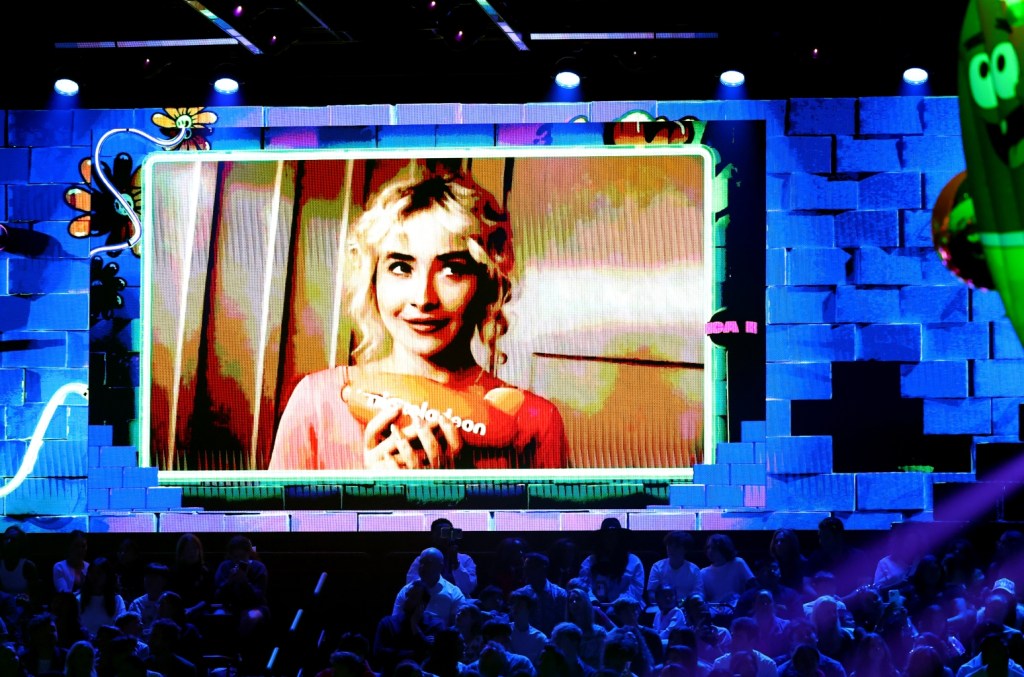
Sabrina Carpenter was the top winner at the 2025 Kids’ Choice Awards, winning three of the show’s signature Orange Blimp trophies: favorite female breakout artist, favorite album for Short n’ Sweet and favorite song for “Taste.” Carpenter’s album, which topped the Billboard 200 for four weeks, won the Grammy for best pop vocal album. “Taste,” a fairly risqué song by Kids’ Choice standards, reached No. 2 on the Billboard Hot 100.
Tyla hosted the show, which aired live on Saturday, June 21 at 8 p.m. (ET/PT) from Barker Hangar in Santa Monica, Calif. Tyla led a dance celebration featuring the hottest songs of the summer and closed out the show with a centerstage sliming (the show’s most popular gimmick). She also won favorite global music star.
Trending on Billboard
Rihanna became the first recipient of the ICON Silver Blimp Award, honored for her contributions to entertainment, beauty and activism. She accepted the Blimp from inside the magical Smurf Village, before unleashing a tidal wave of blue slime on the audience.
SZA, Ariana Grande and Jack Black were all double winners on the night. SZA won favorite female artist and favorite music collaboration for “Luther,” her smash collab with Kendrick Lamar which topped the Hot 100 for 13 weeks. (It goes without saying that the target audience for this show wasn’t even born when Luther Vandross died in 2005.)
Grande won favorite movie actress for playing Glinda in Wicked and favorite song from a movie for backing Cynthia Erivo on “Defying Gravity” from that blockbuster musical, which also won favorite movie.
Black won favorite movie actor for playing Steve in A Minecraft Movie and also received the special King of Comedy award. The latter award was presented by his Nacho Libre co-stars Ana de la Reguera and Héctor Jiménez.
Bruno Mars won favorite male artist. Stray Kids won favorite music group. These were the first wins for Mars, Stray Kids and SZA.
Benson Boone won favorite male breakout artist. Selena Gomez and benny blanco won favorite viral song for “Bluest Flame.”
There were two musical performances: “cliché,” by mgk, from his upcoming seventh studio album, Lost Americana, introduced by his daughter, Casie Baker, and “Gnarly,” by KATSEYE, from their upcoming second EP, Beautiful Chaos, introduced by Ice Spice. Both performances culminated in slimings.
The show also featured celebrity appearances by Malia Baker, benny blanco, Kylie Cantrall, Auli’i Cravalho, Terry Crews, Young Dylan, Brie Garcia, Maia Kealoha, Salish Matter, Kel Mitchell, Daniella Monet, Renee Montgomery, Victoria Monét, Leon Thomas, Alex Warren and more.
Nickelodeon Kids’ Choice Awards 2025 will encore on Sunday, June 22, at 9 a.m. and 6:30 p.m. on Nickelodeon; Monday, June 23, at 8 p.m. on Nicktoons, and Tuesday, June 24, at 9:10 a.m. on TeenNick. (All times are ET/PT.) The show will also be available to stream on Paramount+ on Sunday, June 22.
Nickelodeon Kids’ Choice Awards 2025 is produced by Nickelodeon Productions and overseen by Ashley Kaplan, executive vp, Nickelodeon & Awesomeness Unscripted & Digital Franchise Studio; Paul J Medford, vp, Unscripted Current Series; Luke Wahl, vp, Unscripted Creative, and Jennifer Bernstein, vp, Talent. Guy Carrington & Kevin Hermanson of Done and Dusted serve as executive producers, with Rob Paine serving as co-executive producer. The show is directed by James Merryman.
Here’s a full list of nominations in all categories, with winners marked.
Favorite Song
“Abracadabra” – Lady Gaga
“Cry for Me” – The Weeknd
“I Can Do It With a Broken Heart” – Taylor Swift
“squabble up” – Kendrick Lamar
WINNER: “Taste” – Sabrina Carpenter
“Wildflower” – Billie Eilish
Favorite Album
Beautifully Broken – Jelly Roll
F-1 Trillion – Post Malone
GNX – Kendrick Lamar
Hurry Up Tomorrow – The Weeknd
I Said I Love You First – Selena Gomez, benny blanco
Mayhem – Lady Gaga
WINNER: Short n’ Sweet – Sabrina Carpenter
Wicked: The Soundtrack
Favorite Female Artist
Ariana Grande
Billie Eilish
Cardi B
Katy Perry
Lady Gaga
Selena Gomez
WINNER: SZA
Taylor Swift
Favorite Male Artist
Bad Bunny
WINNER: Bruno Mars
Drake
Jelly Roll
Kendrick Lamar
Post Malone
The Weeknd
Travis Scott
Favorite Music Group
blink-182
Coldplay
Imagine Dragons
Jonas Brothers
Linkin Park
WINNER: Stray Kids
TWICE
Favorite Music Collaboration
“APT.” – ROSÉ and Bruno Mars
“Call Me When You Break Up” – Selena Gomez, benny blanco with Gracie Abrams
“Die With A Smile” – Lady Gaga and Bruno Mars
WINNER: “luther” – Kendrick Lamar and SZA
“Please Please Please” – Sabrina Carpenter (ft. Dolly Parton)
“Show Me Love” – WizTheMc, bees & honey, and Tyla
“Slow Motion” – Marshmello and Jonas Brothers
Favorite Female Breakout Artist
Addison Rae
Chappell Roan
Doechii
GloRilla
JENNIE
LISA
ROSÉ
WINNER: Sabrina Carpenter
Favorite Male Breakout Artist
Alex Warren
WINNER: Benson Boone
d4vd
Djo
Leon Thomas
Myles Smith
Shaboozey
Zach Bryan
Favorite Global Music Star
WINNER: Africa: Tyla
Asia: Stray Kids
Australia: The Kid LAROI
Europe: David Guetta
Latin America: Shakira
North America: Bruno Mars
UK: Ed Sheeran
Favorite Song From a Movie
“Can I Get a Chee Hoo?” – Dwayne Johnson (Moana 2)
WINNER: “Defying Gravity” – Cynthia Erivo (ft. Ariana Grande) (Wicked)
“Higher Love” – DESI TRILL (ft. DJ Khaled, Cardi B, Natania, Subhi) (Smurfs)
“I Always Wanted A Brother” – Braelyn Rankins, Theo Somolu, Aaron Pierre, Kelvin Harrison Jr. (Mufasa: The Lion King)
“I Feel Alive” – Jack Black (A Minecraft Movie)
“Kiss the Sky” – Maren Morris (The Wild Robot)
“Popular” – Ariana Grande (Wicked)
“Run It” – Jelly Roll (Sonic the Hedgehog 3)
Favorite Viral Song
“Apple” – Charli xcx
WINNER: “Bluest Flame” – Selena Gomez, benny blanco
“Diet Pepsi” – Addison Rae
“Messy” – Lola Young
“Ordinary” – Alex Warren
“Pink Pony Club” – Chappell Roan
“Sports car” – Tate McRae
“That’s So True” – Gracie Abrams
Favorite Kids TV Show
Ayla & The Mirrors
Bunk’d
The Really Loud House
WINNER: The Thundermans: Undercover
Tyler Perry’s Young Dylan
Wizards Beyond Waverly Place
Favorite Male TV Star (Kids)
David Henrie (Justin Russo, Wizards Beyond Waverly Place)
Dylan Gilmer (Young Dylan, Tyler Perry’s Young Dylan)
Hero Hunter (Charlie Wilson, Tyler Perry’s Young Dylan)
Israel Johnson (Noah Lambert, Bunk’d)
WINNER: Jack Griffo (Max Thunderman, The Thundermans: Undercover)
Trevor Tordjman (Parker Preston, Bunk’d)
Favorite Female TV Star (Kids)
Celina Smith (Rebecca Wilson, Tyler Perry’s Young Dylan)
Janice LeAnn Brown (Billie, Wizards Beyond Waverly Place)
WINNER: Kira Kosarin (Phoebe Thunderman, The Thundermans: Undercover)
Mallory James Mahoney (Destiny Baker, Bunk’d)
Maya Le Clark (Chloe Thunderman, The Thundermans: Undercover)
Miranda May (Lou Hockhauser, Bunk’d)
Favorite Family TV Show
Abbott Elementary
Cobra Kai
Goosebumps: The Vanishing
Star Wars: Skeleton Crew
The Lord of the Rings: The Rings of Power
WINNER: XO, Kitty
Favorite Male TV Star (Family)
Damon Wayans Jr. (Damon, Poppa’s House)
David Schwimmer (Anthony Brewer, Goosebumps: The Vanishing)
George Lopez (George, Lopez vs Lopez)
Jude Law (Jod Na Nawood, Star Wars: Skeleton Crew)
Sam McCarthy (Devin Brewer, Goosebumps: The Vanishing)
WINNER: Xolo Maridueña (Miguel Diaz, Cobra Kai)
Favorite Female TV Star (Family)
Anna Cathcart (Kitty, XO, Kitty)
Janelle James (Ava Coleman, Abbott Elementary)
Jayden Bartels (Cece Brewer, Goosebumps: The Vanishing)
WINNER: Peyton List (Tory Nichols, Cobra Kai)
Reba McEntire (Bobbie, Happy’s Place)
Ryan Kiera Armstrong (Fern, Star Wars: Skeleton Crew)
Favorite Reality TV Show
American Idol
American Ninja Warrior
America’s Funniest Home Videos
WINNER: America’s Got Talent
MasterChef Junior
The Masked Singer
Favorite Cartoon
Dragon Ball DAIMA
Monster High
WINNER: SpongeBob SquarePants
Teen Titans Go!
The Loud House
The Simpsons
Favorite Movie
A Minecraft Movie
Beetlejuice Beetlejuice
Captain America: Brave New World
Descendants: The Rise of Red
Paddington in Peru
Sonic the Hedgehog 3
THUNDERBOLTS*
WINNER: Wicked
Favorite Movie Actor
Chris Evans (Jack O’Malley, Red One)
Chris Pratt (Keats, The Electric State)
Dwayne Johnson (Callum Drift, Red One)
WINNER: Jack Black (Steve, A Minecraft Movie)
Jason Momoa (Garrett Garrison, A Minecraft Movie)
Jim Carrey (Dr. Robotnik, Sonic the Hedgehog 3)
Favorite Movie Actress
WINNER: Ariana Grande (Glinda, Wicked)
Cynthia Erivo (Elphaba, Wicked)
Emma Myers (Natalie, A Minecraft Movie)
Jenna Ortega (Astrid Deetz, Beetlejuice Beetlejuice)
Millie Bobby Brown (Michelle Greene, The Electric State)
Winona Ryder (Lydia Deetz, Beetlejuice Beetlejuice)
Favorite Animated Movie
Despicable Me 4
Dog Man
WINNER: Inside Out 2
Moana 2
Mufasa: The Lion King
Plankton: The Movie
The Wild Robot
Transformers One
Favorite Male Animated Voice From a Movie
Ben Schwartz (Sonic the Hedgehog, Sonic the Hedgehog 3)
Chris Hemsworth (Orion Pax, Transformers One)
WINNER: Dwayne Johnson (Maui, Moana 2)
Keanu Reeves (Shadow the Hedgehog, Sonic the Hedgehog 3)
Steve Carell (Gru, Despicable Me 4)
Will Ferrell (Maxime Le Mal, Despicable Me 4)
Favorite Female Animated Voice From a Movie
Amy Poehler (Joy, Inside Out 2)
WINNER: Auli’i Cravalho (Moana, Moana 2)
Kristen Wiig (Lucy, Despicable Me 4)
Lupita Nyong’o (Roz, The Wild Robot)
Maya Hawke (Anxiety, Inside Out 2)
Scarlett Johansson (Elita-1, Transformers One)
Favorite Villain
Frankie Grande (Frankini, Henry Danger: The Movie)
Harrison Ford (President Thaddeus Ross/Red Hulk, Captain America: Brave New World)
Jeff Goldblum (The Wonderful Wizard of Oz, Wicked)
WINNER: Jim Carrey (Dr. Robotnik, Sonic the Hedgehog 3)
Michael Keaton (Beetlejuice, Beetlejuice Beetlejuice)
Michelle Yeoh (Madame Morrible, Wicked)
Rita Ora (Queen of Hearts, Descendants: The Rise of Red)
Favorite Butt-Kicker
Anthony Mackie (Sam Wilson/Captain America, Captain America: Brave New World)
WINNER: Emma Myers (Natalie, A Minecraft Movie)
Florence Pugh (Yelena Belova, THUNDERBOLTS*)
Jace Norman (Henry Hart, Henry Danger: The Movie)
Jack Black (Steve, A Minecraft Movie)
Kylie Cantrall (Princess Red, Descendants: The Rise of Red)
Sebastian Stan (Bucky Barnes, THUNDERBOLTS*)
Favorite Female Sports Star
Alex Morgan
Angel Reese
Caitlin Clark
Coco Gauff
Jordan Chiles
Naomi Osaka
Sha’Carri Richardson
WINNER: Simone Biles
Favorite Male Sports Star
Jalen Hurts
Jayson Tatum
WINNER: LeBron James
Lionel Messi
Patrick Mahomes
Shohei Ohtani
Stephen Curry
Travis Kelce
Favorite Male Creator
Adam Rose
Dhar Mann
Keith Lee
Mark Rober
WINNER: MrBeast
SeanDoesMagic
Favorite Female Creator
Brooke Monk
Charli D’Amelio
Emma Chamberlain
Lexi Rivera
WINNER: Salish Matter
Sofie Dossi
Favorite Gamer
Aphmau
IBella
WINNER: IShowSpeed
Kai Cenat
Ninja
Pokimane
Unspeakable
Fan Favorite Kids Creator
A for Adley
Danny Go!
Kids Diana Show
WINNER: Ms. Rachel
Ryan Kaji/Ryan’s World
Toys and Colors
Favorite Podcast
American Girl: The Smart Girl’s Podcast
Are You Afraid of the Dark?
Avatar: Braving the Elements
Baby, This Is Keke Palmer
WINNER: LOL Podcast
New Heights with Jason & Travis Kelce
Super Great Kids’ Stories
The Nikki & Brie Show
Favorite Video Game
Fortnite
Just Dance 2025 Edition
Madden NFL 25
Minecraft
Roblox
Super Mario Party Jamboree
Brat Summer lived on at Wembley Stadium, where Dua Lipa welcomed Charli XCX to the stage for “360” Saturday night (June 21) at her second Wembley Stadium gig on the Radical Optimism Tour. The “Houdini” singer had the London stage lights set to neon green with Charli taking center beside her, fan-captured video from the […]

 State Champ Radio
State Champ Radio 
